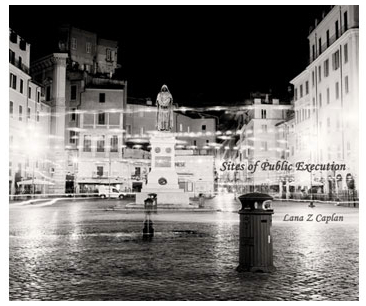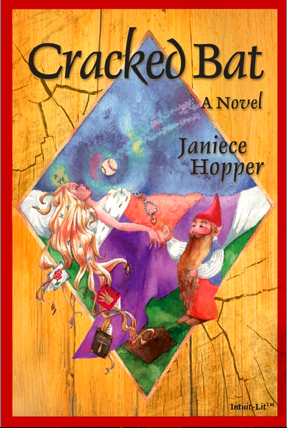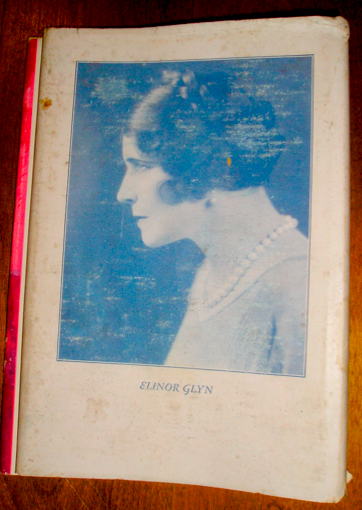On Friday, I raised the specter of the mismatched pitch meeting, the kind where a writer finds are pitching a romantic comedy to an agent who concentrates exclusively upon horror, or trying to convince an editor up to his eyeballs in fiction to give a memoir a chance. Writers seldom talk about this problem amongst themselves, even at conferences, but it happens all the time — especially when writers rely blindly upon conference schedulers to hook them up with the perfect agent for their work.
As I have suggested in my last couple of posts, this level of trust may not pay off for the writer. Specifically, it may result in an agent’s stopping a pitcher half a sentence in with one of the hardest-to-hear sentences in the English language: “Oh, I’m sorry — I don’t represent that kind of book.”
I can feel some of you rolling your eyes already. “Oh, great, Anne,” some of you are sniffing, “go ahead and leap to the worst-case scenario. Way to scare me out of wanting to pitch at all.”
Sniff away, oh cynics, but actually, I have some really, really good reasons for bringing this up now, rather than after I go over the nuts and bolts of pitching: not just because I didn’t want you to be waking up in the dead of night, hyperventilating over the prospect of a mismatched meeting (which, as I said, does happen to writers all the time), but so you may be prepared if it does happen.
Let me put it this way: would you rather learn how to perform the Heimlich maneuver BEFORE the person next to you at the rubber chicken banquet, or during?
Some mismatches are unavoidable, after all — and much of the time, they are the result of simple bad luck. Agents get the flu and cancel their appearances at the last minute, for instance. Or get embroiled in the details a client’s deal, so the agency sends an alternate representative.
Who, being a different individual — chant it with me now, long-time readers — will inevitably have different literary tastes than the first.
Also, at the risk of pointing out that the emperor’s garments are a tad scanty as he dodges behind that great big elephant in the room, agents and editors’ preferences sometimes switch rather abruptly and without a whole lot of publicity. So do market trends.
It is not at all uncommon, for instance, for an agent whose sister has just had a baby suddenly to be interested in parenting books. Or for an editor who has just been mugged to stop wanting to read true crime.
What does this mean, in practical terms? Often, that the person whose conference brochure blurb burbled excitedly about chick lit will shock half a conference crowd by announcing that she’s no longer accepting chick lit submissions.
That sound you heard was all of the writers who signed up for a session with her SPECIFICALLY because of her stated interests keeling over in a dead collective faint.
In short, sometimes, despite your best efforts, you may end up pitching to someone who is categorically disinclined to listen — which more or less guarantees rejection, no matter how great the book concept or writing may be.
Isn’t it better that you hear it from me now, rather than having it come as a stunning mid-conference surprise? Most writers, not having anticipated this particular possibility, will either:
a) freeze, unsure what to do, and end up pitching to the now-inappropriate agent or editor anyway,
b) assume that it’s a waste of time to pitch to that agent or editor, and just not show up for the scheduled appointment, or
c) assume that the agent or editor is lying about not being open to certain types of book and pitch it anyway — because if it were a really great book, he would cast ten years of marketing experience aside and grab it on the spot, right?
Wrong. Agents represent what they represent; a rejection based on book category has nothing whatsoever to do with the quality of the book, or even of the pitch. It’s no reflection upon you or your writing. It can’t be, logically: by definition, a pitch-hearer is judging a verbal presentation, not words on a page.
So what should you do if you end up in an inappropriate meeting?
Other than, of course, taking on the quixotic task of trying to convince an industry professional to change utterly how s/he has decided to do business — which is, incidentally, to what pitching to an agent who doesn’t represent your kind of book amounts. Yet conference after conference, year after year, writers will bullheadedly insist upon acting as though every agent represents every conceivable type of book — and responding to the practically inevitable rejection by concluding that their books simply aren’t of interest to the publishing industry.
That’s poppycock, of course: the only rejection that means anything at all about your book’s marketability is one that comes from someone who specializes in your chosen book category.
But you already know that you’re looking for Ms. or Mr. Right Agent. Let’s get back to the practical issue of what you should do if you end up with Mr. or Ms. Wrong.
You could, of course, just thank the agent and walk away immediately. This is, in fact, what most agents in this situation are hoping you will do (more on that below), but better than that, it preserves your dignity far better than the usual writer’s reaction, to argue about whether the book would be a good fit for the agency. (Which never, ever works, in case you were wondering.)
However, you’ve got time booked with a seasoned industry professional — why not use it productively? Why not ask some questions?
Hear me out. Remember that you are at the conference not merely to make contacts with people in the industry, but to learn how to market your work better. Yes, you will be disappointed, but I can absolutely guarantee that an hour after the meeting, you will be significantly happier if you didn’t just sit there, feeling miserable and helpless.
What kind of questions, you ask? Well, for starters, how about, “If you were in my shoes, which agent here at the conference would YOU try to buttonhole for an informal pitch?”
Or, “Does anyone at your agency handle this kind of work? May I say in my query letter that you suggested I contact this person?”
Or, even more broadly: “I understand that this isn’t your area per se, but who do you think are the top five agents who DO handle this sort of book?”
Usually, they’re only too happy to help; don’t forget, this is an awkward moment for them, too. Only sadists LIKE seeing that crushed look in a writer’s eyes.
Seriously, it’s true. Mentally, I promise you, that agent will be cursing the evil fate that decreed that the two of have to spend ten or fifteen interminable minutes together; he doesn’t want to face recriminations, either from disappointed aspiring writers or from his boss if he comes back with work that he is not technically supposed to have picked up. (Editors at major publishing houses, anyone?) So many will become very frosty, in the hope you will walk away and end this awful uncomfortable silence.
If you can pull yourself together enough to move on to topics that you’re both comfortable discussing, trust me, the agent will appreciate it. Not enough to pick up your book, but still, enough to think of you kindly in future.
Don’t underestimate how helpful that may be down the line: both agents and editors move around a LOT. Just because the guy in front of you isn’t interested in your current project doesn’t necessarily mean that he won’t be interested in your next, right?
Approaching the disappointment as a learning experience can make the difference between your stalking out of your meeting, biting back the tears, and walking out feeling confident that your next pitch will go better.
Besides, agents are often flattered by being asked their opinions, I find. There’s such a thing as human nature: few people are insulted by being admired for their expertise.
So it’s worth your while prepping a few questions in advance, as insurance. If the agent or editor seems approachable, you might even want to ask, after the other questions, “Look, I know it isn’t your area, but you must hear thousands of pitches a year. Would you mind listening to mine and giving me some constructive criticism?”
Remember, though, that when you ask for advice, you are requesting a FAVOR. Be accordingly polite — and grateful.
Particularly the latter. As someone who both teaches classes and goes to a lot of writing conferences, I both see and have first-hand experience with the VERY common ilk of writer who, having found a knowledgeable person in the industry gracious enough to answer questions, quickly becomes super-demanding. Literally every agent and editor I have ever met has a horror story about that writer at a conference who just wouldn’t go away.
A word to the wise: remember, stalking is illegal, and no amount of friendly helpfulness means that a “I’m sorry, but I don’t represent that kind of book,” into a “In your case, I’ll be delighted to make an exception.”
I’m going to be writing at some length later in this series about navigating the rather tricky etiquette of the pitching situation, but for starters, here’s a great rule of thumb: let the other party set the level of intimacy.
And regardless of their level of interest, try to make it a nice conversation, rather than a confrontation or a referendum on your prospects as a writer — an excellent plan regardless of whether your assigned pitch meeting is a good fit or not, actually.
Here again, background research helps: knowing something about the agent or editor will not only minimize the probability of ending up in an inappropriate pitch meeting, but will also enable you to ask intelligent questions about how he handles his clients’ work.
For instance, in the past, most fiction was published first in hardcover; until fairly recently, newspapers refused to review softcover fiction. However, increasingly, publishing houses are releasing new fiction in trade paper, a higher-quality printing than standard paperback, so the price to consumers (and the printing costs) may be significantly lower.
Why should you care? Well, traditionally, authors receive different percentages of the cover price, based upon printing format. Trade paper pays less than hardback.
So if you were speaking with an agent who had a lot of clients who were publishing in trade paper, you might want to ask, “So, I notice that several of your clients published their first novels in trade paper. Is that your general preference? What do you see as the major advantages and disadvantages to going this route?”
Knowing something about the books an agent has sold will also demonstrate that, unlike 99.9% of the aspiring writers he will see this season, you view him as an individual, an interesting person, rather than a career-making machine with legs. This can be a serious advantage.
Why? Well, think about it: if the agent signs you, the two of you are going to be having a whole lot of interaction over a number of years. Would you prefer his first impression of you to be that you were a nice, considerate person — or a jerk who happened to be talented?
I heard all of you who just thought, “I don’t care, as long as he signs me.” Go stand in the corner until your attitude problem improves; impolite writers make all of us look bad.
Being conversant with the books they have handled is flattering: we all like to be recognized for our achievements, after all. Agents and editors tend to be genuinely proud of the books they handle; remember, the vast majority of ANY agent’s workday is taken up with her existing clients, not ones she is thinking about perhaps picking up.
And let’s face it: if you’ve paid hundreds of dollars to attend a literary conference (and possibly travel expenses on top of that), it doesn’t make sense to limit your pitching to a single, pre-scheduled pitching appointment. It’s in your best interest to find out in advance who ALL of the agents and editors who deal with your type of book are, so you may buttonhole them in the hallways and pitch.
Don’t worry; I shall be giving you some tips on how to do that without coming across like a stalker. (Which, again, is ILLEGAL, no matter how badly you want a particular agent to hear about your book.)
Boning up on the facts can also help you calm down before giving your pitch. Instead beginning with a nervous “Hi,” followed by an immediate launch into your pitch, wouldn’t it be great if you could stroll in and break the tension with something along the lines of, “Hello. You represent Lynne Rosetto Casper, don’t you? I just loved her last cookbook.”
Trust me, she will be pleased to meet someone who has contributed to her retirement fund by buying one of her clients’ books, even if that someone happens to want to pitch her a kind of manuscript she doesn’t represent.
One caveat: if you plan to make mention of a particular book, do come prepared to talk about it for a couple of minutes. Don’t make the common mistake of praising a book you haven’t read. And don’t lie about liking a book that you hated, of course.
Pitch specifics follow in the days and weeks to come. In the meantime, keep up the good work!














